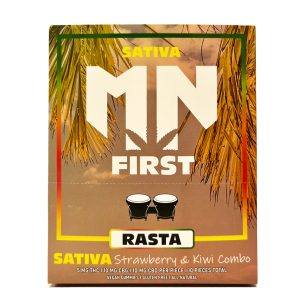**Historical Evolution of Veganism:**
– Early proponents like Al-Maarri, Roger Crab, Johann Conrad Beissel, James Pierrepont Greaves, and Lewis Gompertz.
– Coined term ‘veganism’ by Dorothy Morgan and Donald Watson in 1944.
– Surge in interest in veganism in the 2010s.
– Roots of vegetarianism in ancient civilizations, advocated by figures like Pythagoras, Ovid, and Seneca.
– Rise of vegetarianism as a movement in the 19th century in Britain and the United States.
– Establishment of the Vegetarian Society in the UK in 1847.
– Mahatma Gandhi’s promotion of a meat-free diet during his London visit in 1931.
– Various categories of veganism based on motivations and practices.
**Nutritional Aspects of Veganism:**
– Higher levels of fiber, magnesium, folic acid, and vitamins C and E in vegan diets.
– Lower in saturated fat, cholesterol, omega-3 fatty acids, vitamins D, calcium, zinc, and B12.
– Potential nutritional deficiencies and health issues with poorly planned vegan diets.
– Importance of Vitamin B12 supplementation.
– Benefits and risks for health with the elimination of all animal products.
**Types and Definitions of Veganism:**
– Dietary vegans avoid meat, eggs, dairy, and other animal-derived products.
– Ethical vegans extend avoidance to using animals, animal products, and animal-tested items.
– Environmental veganism focuses on the impact of animal farming.
– Distinctions among various categories of veganism based on motivations and practices.
– The Vegan Society’s definition of veganism as avoiding all forms of animal exploitation.
– Two accepted definitions of veganism: ethical/environmental and dietary.
**Global Impact and Popularity of Veganism:**
– Growth in the vegan population between 2017 and 2019.
– Increase in plant milk consumption in the UK and the United States.
– Rise of veganism in Hong Kong, China, and other countries.
– Projected growth of the global vegan market.
– Adoption of vegan school meals and the presence of vegan restaurants worldwide.
– Prevalence of veganism in various countries like Israel, Germany, the Netherlands, Canada, and the United Kingdom.
**Environmental and Practical Aspects of Veganism:**
– Environmental benefits of veganism in reducing greenhouse gas emissions.
– Impact of livestock agriculture on deforestation and water pollution.
– Lower ecological footprint of plant-based diets compared to animal-based diets.
– Role of veganism in combating climate change and preserving biodiversity.
– Transition to sustainable farming practices for a healthier planet.
– Use of plant milk and dairy product alternatives, egg replacements, and vegan clothing options.
Veganism is the practice of abstaining from the use of animal products—particularly in diet—and an associated philosophy that rejects the commodity status of animals. A person who follows the diet or philosophy is known as a vegan.
| Veganism | |
|---|---|
The symbol widely used to denote a vegan-friendly product | |
| Pronunciation | Veganism /ˈviːɡənɪzəm/ VEE-gə-niz-əm Vegan /ˈviːɡən/ VEE-gən |
| Description | Avoiding the use of animal products, particularly in diet |
| Earliest proponents |
|
| Term coined by | Dorothy Morgan and Donald Watson (November 1944) |
| Notable vegans | List of vegans |
| Notable publications | List of vegan media |
Distinctions may be made between several categories of veganism. Dietary vegans, also known as "strict vegetarians", refrain from consuming meat, eggs, dairy products, and any other animal-derived substances. An ethical vegan is someone who not only excludes animal products from their diet but also tries to avoid using animals, animal products, and animal-tested products when practical. Another term is "environmental veganism", which refers to the avoidance of animal products on the grounds that the industrial farming of animals is environmentally damaging and unsustainable. Another motivation for veganism is concern about animal welfare.
Vegan diets tend to be higher in dietary fiber, magnesium, folic acid, vitamin C, vitamin E, iron, and phytochemicals, and lower in dietary energy, saturated fat, cholesterol, omega-3 fatty acid, vitamin D, calcium, zinc, and vitamin B12. As a result of the elimination of all animal products, a poorly planned vegan diet can lead to nutritional deficiencies that counteract its beneficial effects and cause serious health issues, some of which can only be prevented with fortified foods or dietary supplements. Vitamin B12 supplementation is important because its deficiency can cause blood disorders and potentially irreversible neurological damage; this danger is also one of the most common in poorly planned non-vegan diets.
The word vegan was coined by Donald Watson and his later wife Dorothy Morgan in 1944. Interest in veganism increased significantly in the 2010s.





